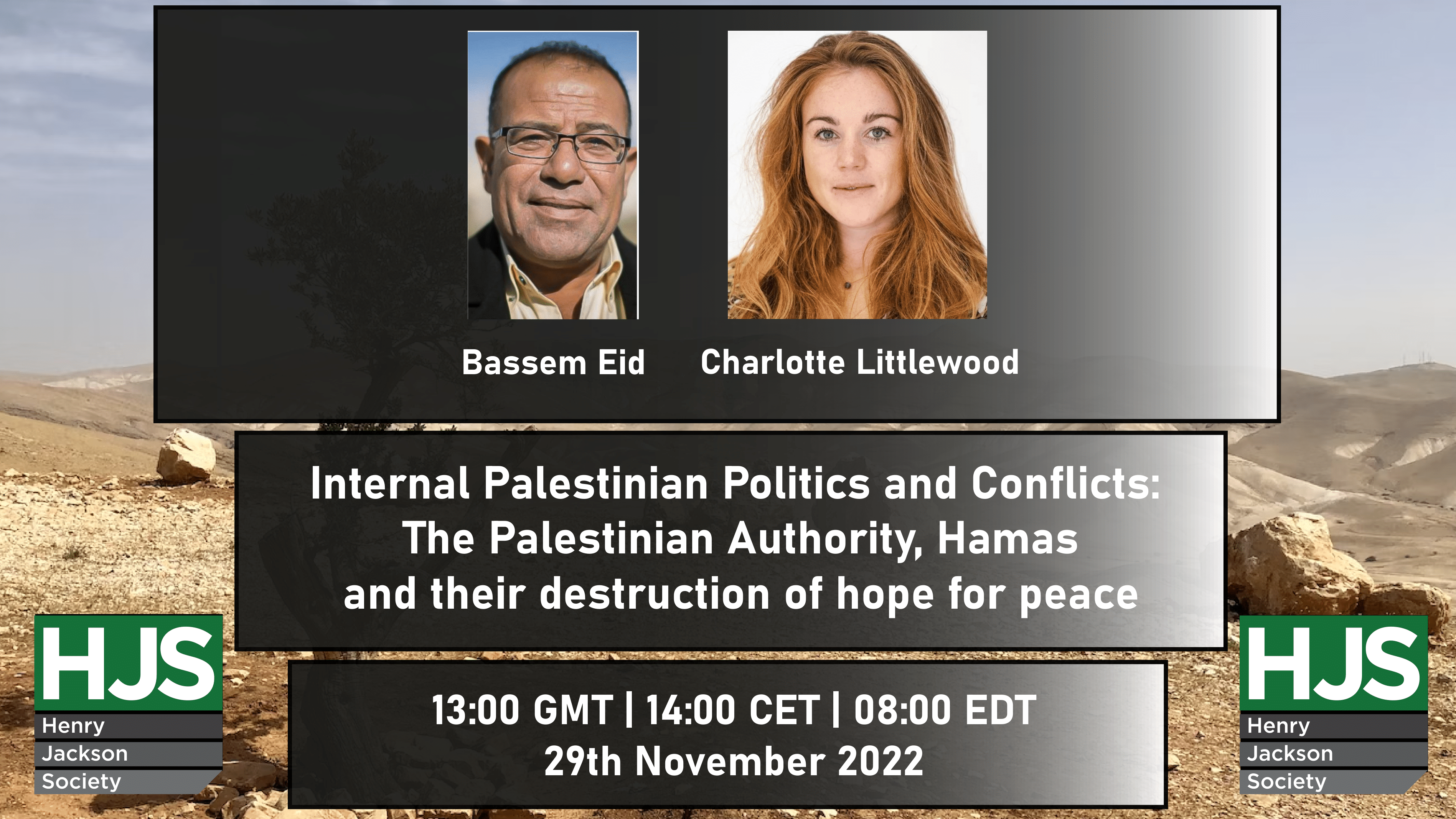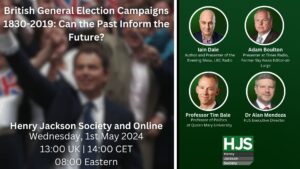Internal Palestinian Politics and Conflicts: The Palestinian Authority, Hamas and Their Destruction of Hope for Peace

- This event has passed.
Internal Palestinian Politics and Conflicts: The Palestinian Authority, Hamas and Their Destruction of Hope for Peace
29th November 2022 @ 1:00 pm - 2:00 pm

|


Bassem Eid is a Jerusalem-based political analyst, human rights pioneer and expert commentator on Arab and Palestinian affairs. Bassem Eid was born in the Jordanian-occupied Old City in East Jerusalem, whose place of residence became the United Nations Refugee Works Agency (UNRWA) refugee camp of Shuafat. He rose to prominence during the first Intifada, the Palestinian uprising and was a senior field researcher for B’Tselem, the Israeli Information Center for Human Rights in the Occupied Territories. In 1996, he founded the Jerusalem-based Palestinian Human Rights Monitoring Group. In 2016, Eid assumed the role of chairman of the Center for Near East Policy Research.
Bassem Eid publicly condemned the widespread murder of Palestinian dissidents, often for reasons unrelated to the Intifada. In 1995, following his report about the Palestinian Preventive Security Service (PSF), he came under attack by some Palestinian leaders for revealing human rights violations committed by the Palestinian Authority (PA). Arrested by Arafats’ Presidential Guard (Force 17), he was released after 25 hours following widespread international condemnation.
Bassem Eid has spent 26 years researching UNRWA policies and has written extensively on the subject of UNRWA reform and is an outspoken critic of the Boycott, Divestment and Sanctions (BDS) movement.

Charlotte Littlewood is a research fellow at the Henry Jackson Society. She is a PhD candidate in Arab and Islamic studies with the University of Exeter University. Her research focuses on minority within Muslim minority conflict in the UK, in particular the persecution of the Ahmadiyya Muslim Community and the extent to which the UK is able to support this community.
Charlotte started her career as a Prevent practitioner on behalf of the UK government, going on to be a Counter-Extremism Coordinator for an East London Borough. From this Charlotte went on to found her own community interest company with the aim of countering extremism and promoting equality. She developed and took projects that focused on women’s rights and tackling domestic violence to the West Bank, Palestine. Alongside this she consulted for Muslims Against Antisemitism, working towards greater tolerance and cohesion between communities in the UK.
Charlotte has a LLB in Law and MA in Security and Strategy.
***
EVENT SUMMARY

The Henry Jackson Society was pleased to welcome Bassem Eid for a discussion on peace for the Palestinian people in the ongoing Israel-Palestine conflict. Charlotte Littlewood began by introducing the speaker. Bassem Eid then outlined Palestine’s current divided society, stating that the conflict between Hamas and Fatah and the West Bank and Gaza are significant obstacles to any major peace. He then emphasised priorities for Palestinians being gaining employment for survival, referencing the starvation in Palestine, as well as ensuring a sufficient education and health care system for their children, whilst highlighting that the majority of Palestinians have lost trust in their leadership. Bassem Eid proceeded by outlining the issues of corruption in the West Bank and Gaza, noting the significance of economic persuasion. Following this, he stressed that without economic prosperity being a focus of the Israeli-Palestinian conflict it will never be solved and thus that the economic aspect of the conflict is one of the largest issues EU leaders should consider, not negotiations for peace. Finally, Bassem Eid answered questions on whether Egypt could be persuaded to take back Gaza, how to create a liberal, democratic Palestinian society and opposition to the Palestinian Authority.
RELATED EVENTS
British General Election Campaigns 1830-2019: Can The Past Inform The Future?”
The British general election is the linchpin of our liberal democracy, and its results are often fundamental to how we live. With the next UK general election looming, there is therefore … Continued



